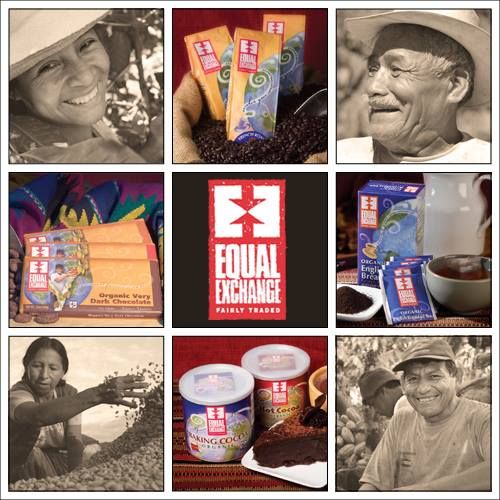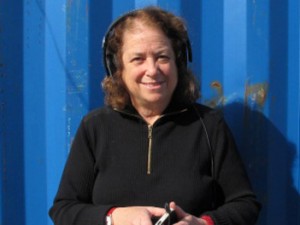“You got the power, I’ve seen you use it, they say you don’t have it, that’s how you lose it.” Lyric by Mitch Margo from his song California Reggae Debate (What Can I Do?)
We must act, speak out, protest, and do everything in our power to stop the dismantling of democracy. It’s up to us!!! The current administration is banning words from research documents and reports. An online article from InvestigateMidwest.org stated that: On the day of his inauguration, DJT claimed his administration would end the “censorship of protected speech.” But actions speak louder than words. Thanks to a leaked email memo, we now know the Trump administration has drawn up a list of 110 words and phrases that have now been banned from use in the Agricultural Research Service (ARS). ARS is the division of the U.S. Department of Agriculture (USDA) tasked with providing the agricultural research, education and economic analysis that protects the health of the nation’s farmland, ensures the safety of the food we eat and develops solutions for diseases, disasters and other threats to the food supply. Here are the climate related terms that have been removed:
climate, climate change, climate-change, changing climate, climate consulting, climate models, climate model, climate accountability, climate risk, climate resilience, climate smart agriculture, climate smart forestry, climatesmart, climate science, climate variability, global warming, carbon sequestration, GHG emission, GHG monitoring, GHG modeling, carbon emissions mitigation, greenhouse gas emission, methane emissions, green infrastructure, sustainable construction, carbon pricing, carbon markets. Other topics with banned words are Pollution Remediation, Water Infrastructure, Clean Energy, Clean Transportation, Affordable Housing, and DEI (Diversity, Equity, Inclusion).
I am convinced we are in an alternate universe or a hologram, as we are living in a reality show which has no basis in REALITY! On this episode of TMSOG Charlotte Ghiorse, our art guru, eco-activist and sexy astrologist joins us to discuss banned words, the microplastic problem, the tariff on Penguins, protests, the current state of our nation, what astrology has got to do with it and more. For more info go to houseofchoclet.com, Sexy Astrology on FB and YouTube.
Go to https://www.ucs.org/ and donate to help scientists continue their valuable work. If you want to help protect the environment please donate to https://earthjustice.org/ https://www.beyondplastics.org/ You can also donate to help lawyers defend our constitution by going to https://www.aclu.org/ and the Brennan Center for Justice https://www.brennancenter.org/
To listen to past TMSOG shows go to: https://hudsonriverradio.com/ and https://malcolmpresents.com Follow The Many Shades of Green on FB, Threads and Instagram @tmshadesofgreen and on Blue Sky @tmshadesofgreen.bsky.social. Listen to TMSOG podcasts on all major podcast apps.#RaiseYourSocialConsciousness
A Special shout out to Neil Richter for all of his help and engineering wizardry in getting TMSOG up and running each week.


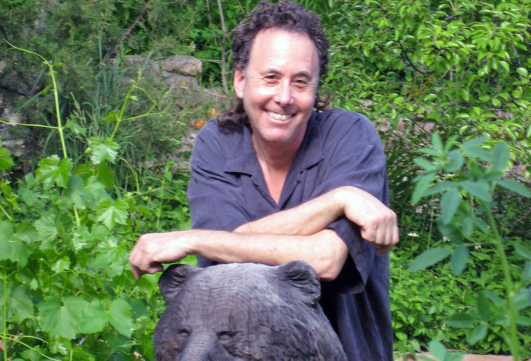
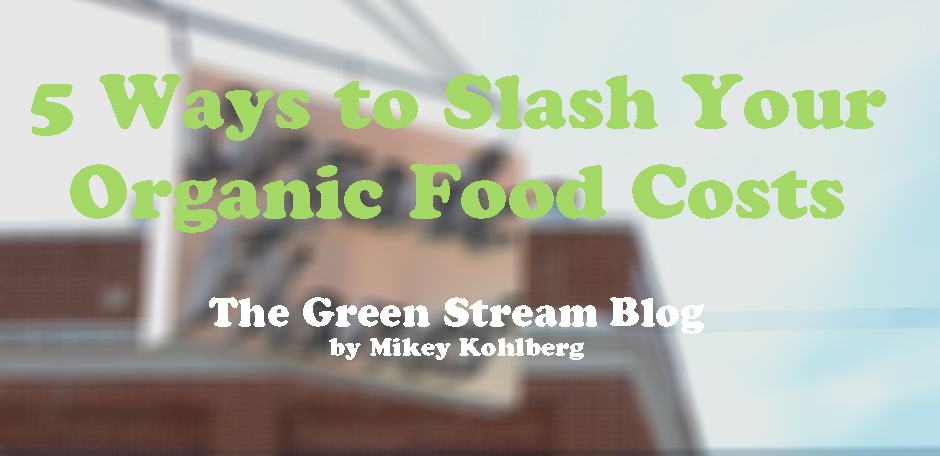
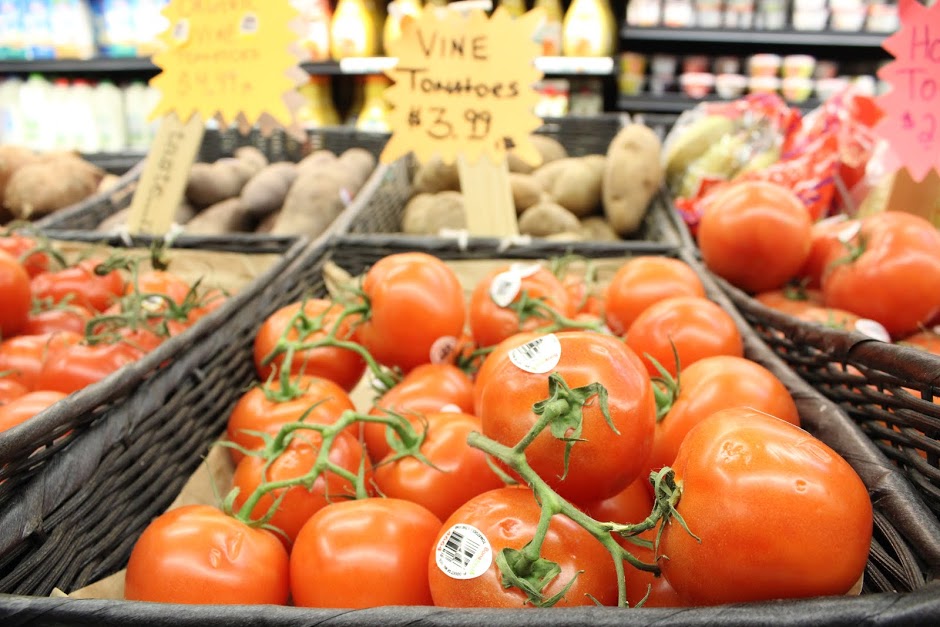
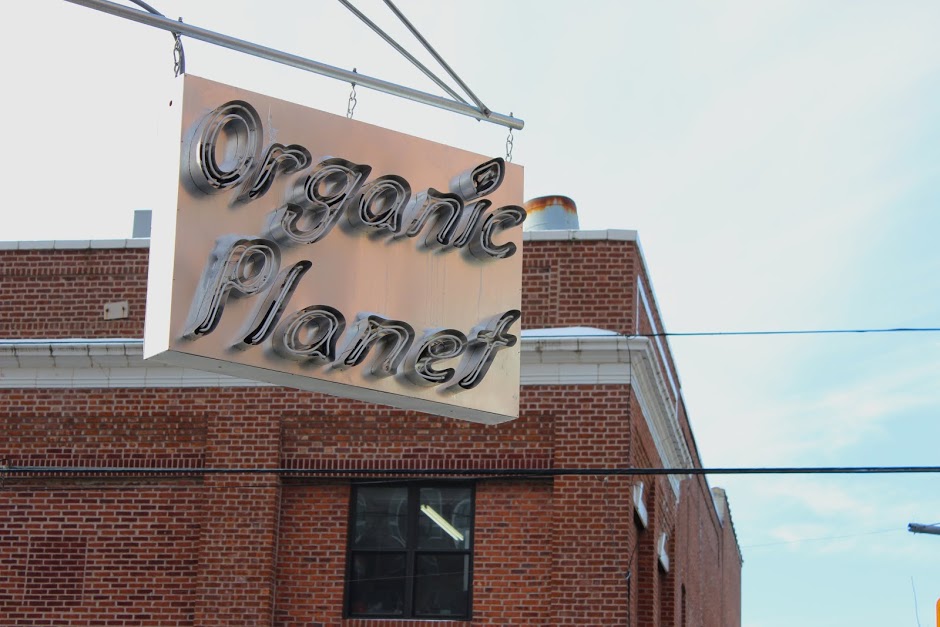
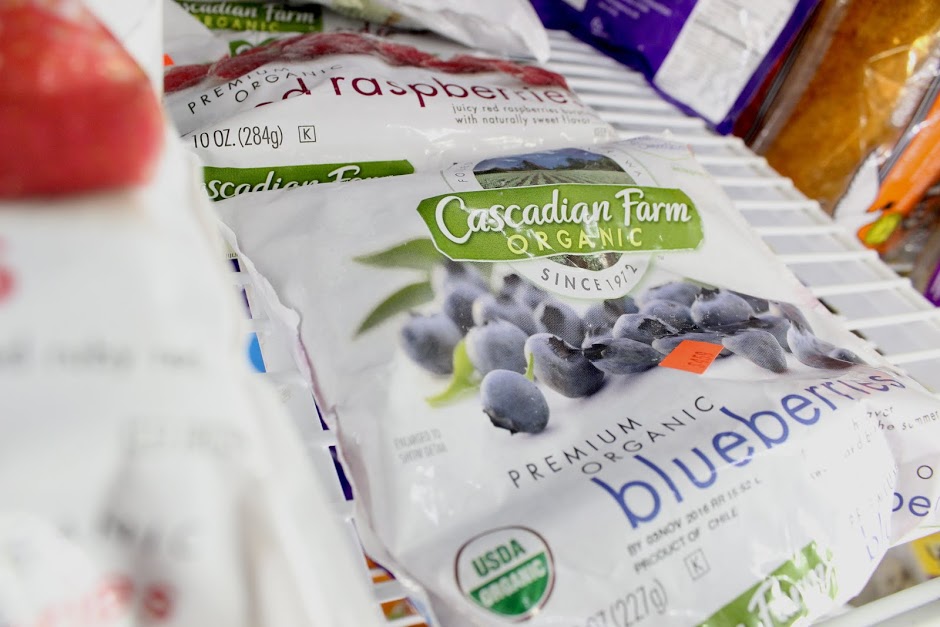
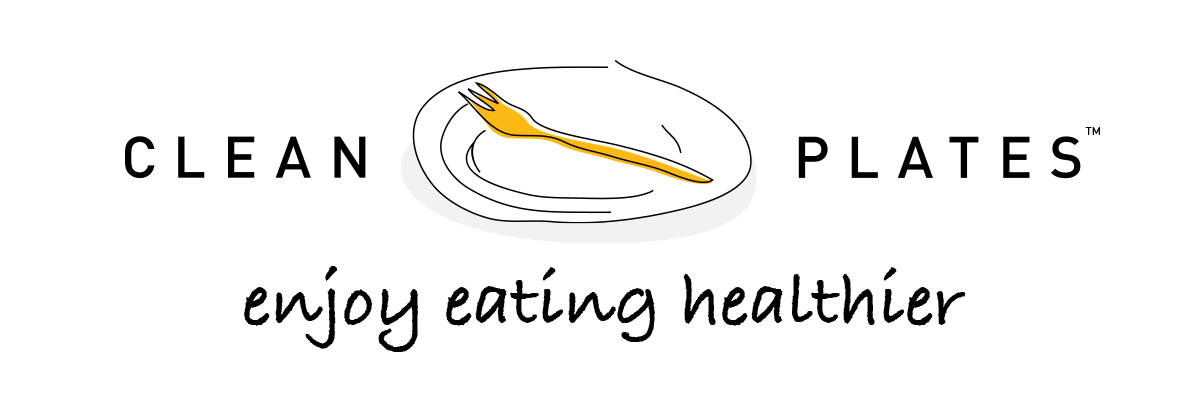
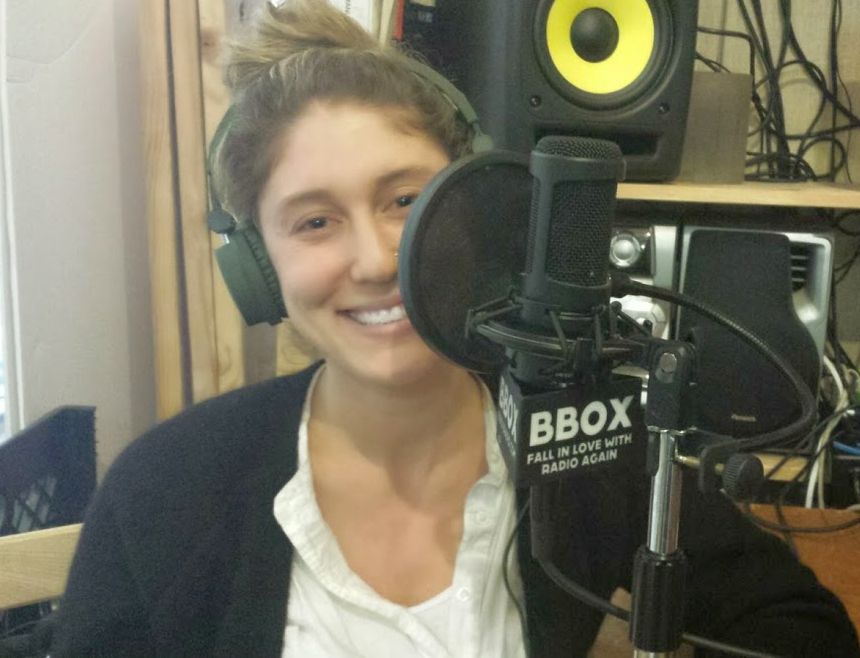 When your mom yelled “eat your veggies” she was definitely on to something. My guest this week is Ashley Spivak, Director of Restaurant Guides at Clean Plates. We discuss the importance of a well balanced, plant based eating regimen, that will lead to a healthier you. An 80/20 diet of 80% good stuff (vegetables, fruits, whole grains and protein), and 20% of the foods that make you smile (pie, cookies, mac and cheese) is a good formula to follow. Bio-individuality indicates that there is no right way to eat, not every person is the same, and diets and food choices affect different body types in different ways. The Clean Plates Food Guide lists restaurants that are more conscious about where they source their produce, meats, grains, as well as the taste of the food, the prep and the atmosphere. Making informed choices whether eating out or in is essential to being a healthier, smarter and cleaner eater. For more info about Clean Plates online publications, guides, phone apps and recipes, go to
When your mom yelled “eat your veggies” she was definitely on to something. My guest this week is Ashley Spivak, Director of Restaurant Guides at Clean Plates. We discuss the importance of a well balanced, plant based eating regimen, that will lead to a healthier you. An 80/20 diet of 80% good stuff (vegetables, fruits, whole grains and protein), and 20% of the foods that make you smile (pie, cookies, mac and cheese) is a good formula to follow. Bio-individuality indicates that there is no right way to eat, not every person is the same, and diets and food choices affect different body types in different ways. The Clean Plates Food Guide lists restaurants that are more conscious about where they source their produce, meats, grains, as well as the taste of the food, the prep and the atmosphere. Making informed choices whether eating out or in is essential to being a healthier, smarter and cleaner eater. For more info about Clean Plates online publications, guides, phone apps and recipes, go to 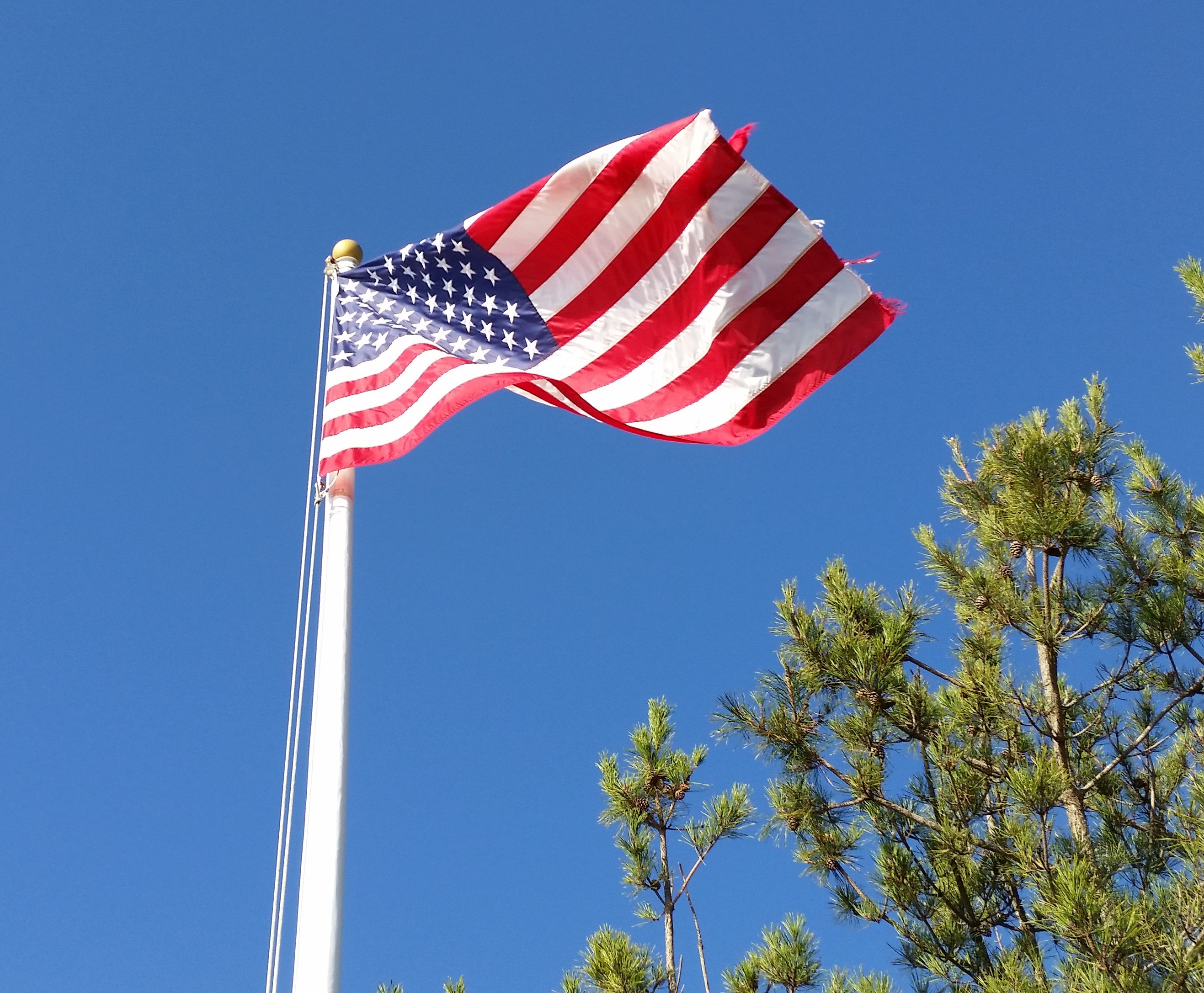
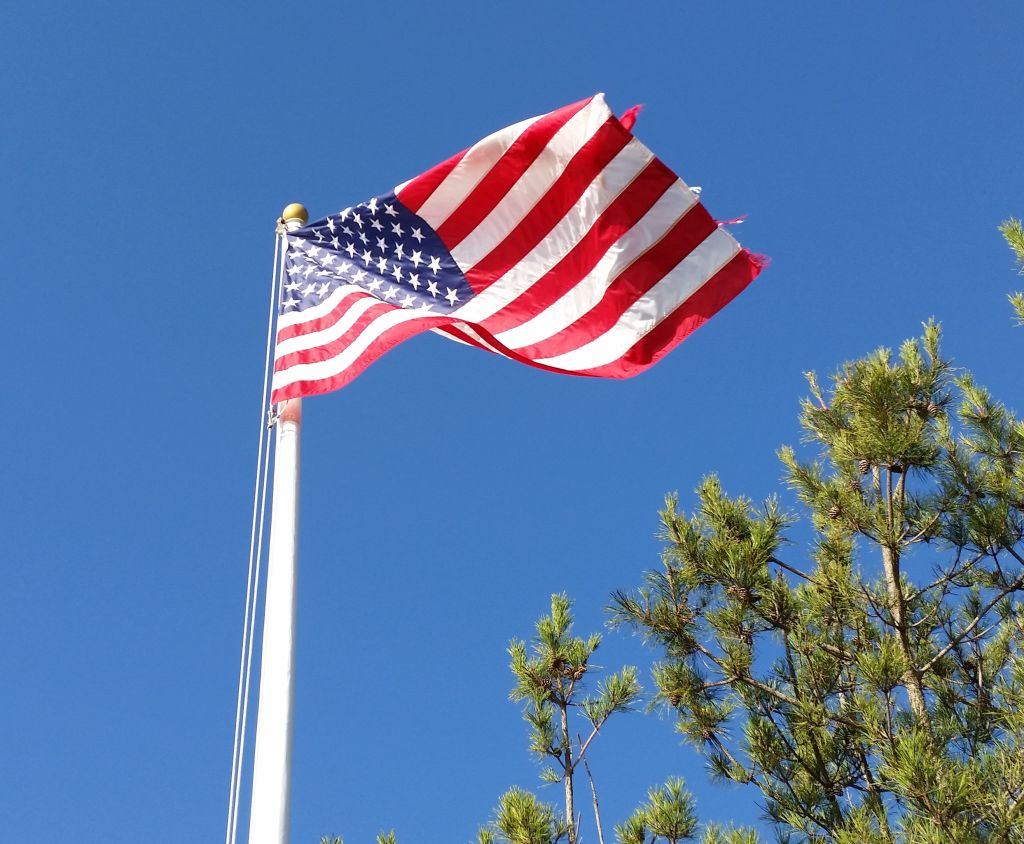 By
By 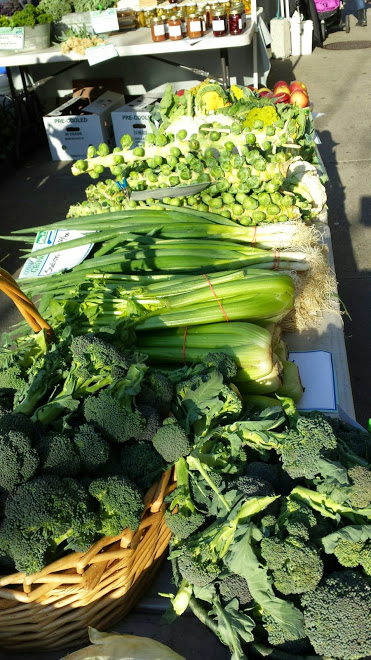 Long story short, America’s reckless agricultural techniques and lack of quality governmental oversight has created a situation in which Americans are falsely assured by their own government about the safety of their food. It is a situation that still has its solutions though. What we need is mass education which will contribute to a snowballing in consumer awareness about the importance of the local and sustainable food movement. It has started to take hold around the world but with EVERONE’S help, we will begin to change. Their have been sparks of change so far, but we need to keep the passion strong to get the fire roaring. As we eat locally and buy from small farms, food becomes much healthier, less mysterious, and more tasty. While food transportation costs and emissions are reduced, air becomes cleaner in cities and communities become stronger through community farms and other
Long story short, America’s reckless agricultural techniques and lack of quality governmental oversight has created a situation in which Americans are falsely assured by their own government about the safety of their food. It is a situation that still has its solutions though. What we need is mass education which will contribute to a snowballing in consumer awareness about the importance of the local and sustainable food movement. It has started to take hold around the world but with EVERONE’S help, we will begin to change. Their have been sparks of change so far, but we need to keep the passion strong to get the fire roaring. As we eat locally and buy from small farms, food becomes much healthier, less mysterious, and more tasty. While food transportation costs and emissions are reduced, air becomes cleaner in cities and communities become stronger through community farms and other 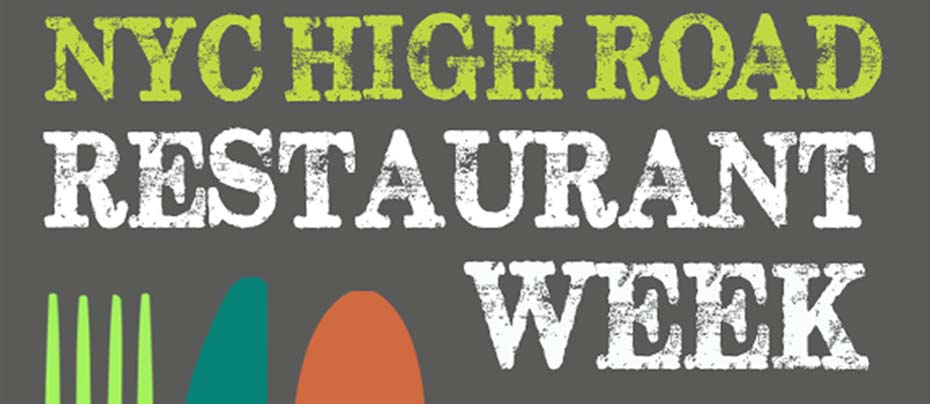
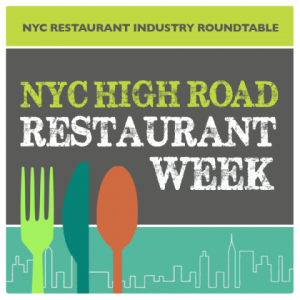 “The fight is never about grapes or lettuce…it is always about people.” That quote by Cesar Chavez describes what Colt Taylor, Executive Chef at One if By Land, Two if By Sea, and Tatiana Bejar, High Road Coordinator of the Restaurant Opportunities Center of New York, have teamed up to do, help the people, which in this case are the restaurant employees who are often times working in conditions that are not always optimal. High Road Restaurant Week, which runs from April 23rd through April 30th, aims to call attention to the the need to improve employment practices, via living wage, health benefits, sick days and overall treatment of those who work so hard to make our dining experiences more pleasurable. Sustainability doesn’t stop at the quality of food, it also connects to the human side, and restaurant workers deserve to be able to support their families and have benefits that all workers strive for. Please visit
“The fight is never about grapes or lettuce…it is always about people.” That quote by Cesar Chavez describes what Colt Taylor, Executive Chef at One if By Land, Two if By Sea, and Tatiana Bejar, High Road Coordinator of the Restaurant Opportunities Center of New York, have teamed up to do, help the people, which in this case are the restaurant employees who are often times working in conditions that are not always optimal. High Road Restaurant Week, which runs from April 23rd through April 30th, aims to call attention to the the need to improve employment practices, via living wage, health benefits, sick days and overall treatment of those who work so hard to make our dining experiences more pleasurable. Sustainability doesn’t stop at the quality of food, it also connects to the human side, and restaurant workers deserve to be able to support their families and have benefits that all workers strive for. Please visit 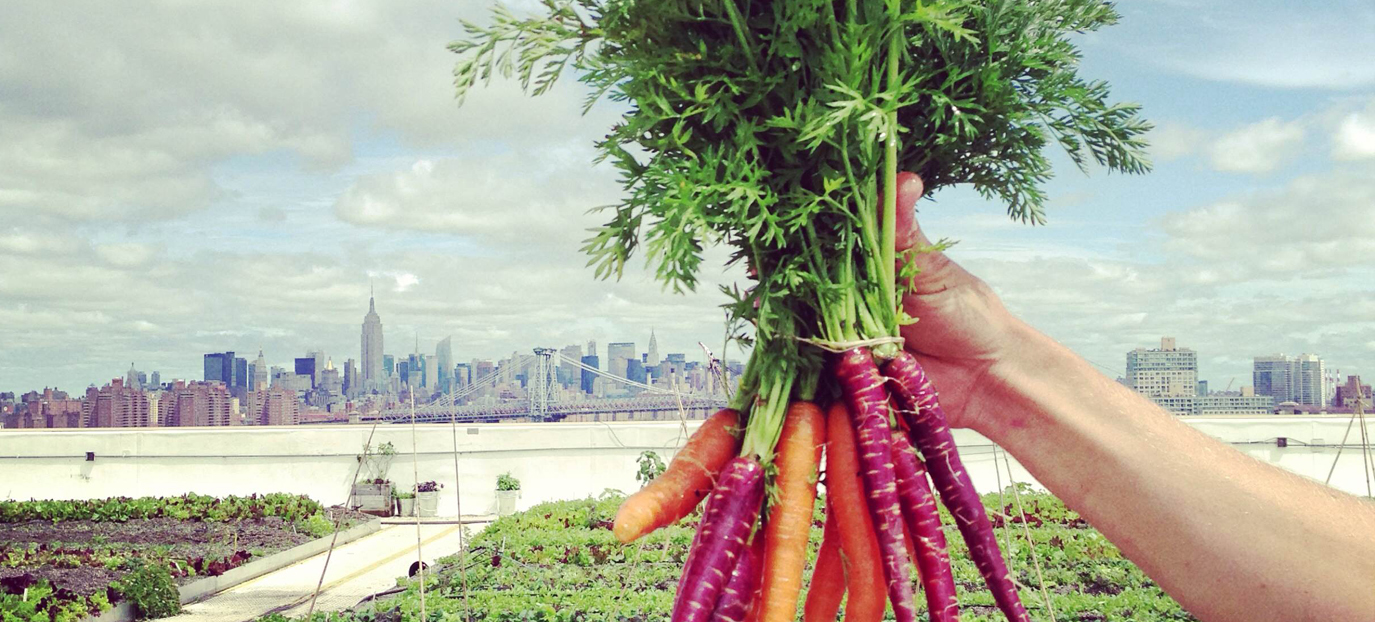
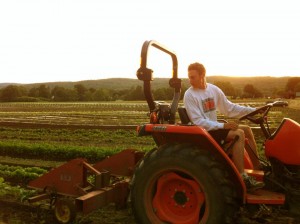 Learn what you can grow Up On The Roof, as Bradley Fleming, Farm Manager at Brooklyn Grange Farm explains how urban agriculture is taking hold on a tall building near you. Find out what grows best on a city roof, and how it helps both the environment and adds to the sustainability of NYC. Go to www.brooklyngrangefarm.com for more info.
Learn what you can grow Up On The Roof, as Bradley Fleming, Farm Manager at Brooklyn Grange Farm explains how urban agriculture is taking hold on a tall building near you. Find out what grows best on a city roof, and how it helps both the environment and adds to the sustainability of NYC. Go to www.brooklyngrangefarm.com for more info.